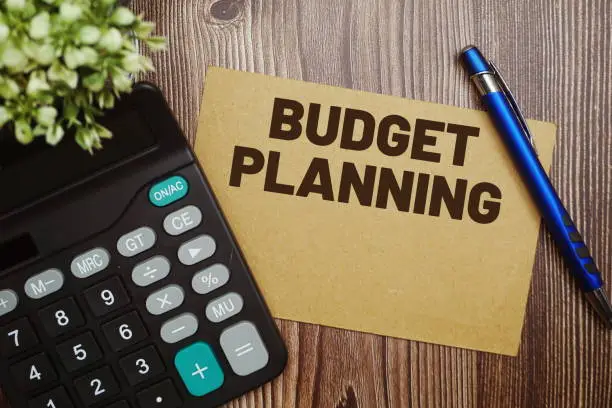Don’t just make a budget—make it work.
Budgeting is one of the most powerful tools for financial freedom—yet it’s also one of the most misunderstood. If you’ve ever made a budget, stuck to it for a week, and then completely forgotten about it, you’re not alone. It’s easy to think that simply writing down your expenses is enough. But budgeting is a skill, and like any skill, it takes practice (and some trial and error).
In this guide, we’re diving into the 7 most common budgeting mistakes people make—and how to avoid them. Whether you’re just starting or trying to get back on track, avoiding these traps can make your financial journey smoother and a lot more successful.
1. Not Having a Budget at All
Let’s start with the biggest mistake—not budgeting at all.
Many people think they don’t need a budget because they “don’t spend much” or “know where their money goes.” But without a clear plan:
- You’re guessing, not managing.
- Small expenses add up without you noticing.
- You’re more likely to fall short on savings and debt goals.
Solution: Use a simple budgeting method like the 50/30/20 rule (50% needs, 30% wants, 20% savings/debt). Apps like YNAB (You Need A Budget) or Mint can help you get started easily.
2. Underestimating or Ignoring Small Expenses
A $5 coffee here, a $10 delivery there… sounds harmless, right? But those little “treats” can quietly drain your wallet over time.
Examples of sneaky spending:
- Subscription services you forgot about
- Frequent takeout meals
- Late-night online shopping
Solution: Track every expense for a month—yes, every single one. You’ll be shocked at how fast the small stuff adds up. Tools like PocketGuard or Spendee make it easy.
3. Making Your Budget Too Strict
Trying to budget down to the last penny or cutting all your “fun” spending often leads to burnout. It’s like going on a crash diet—you might stick with it for a while, but eventually, you’ll binge.
Signs your budget is too strict:
- You feel stressed or guilty about every dollar you spend.
- You constantly break your own rules.
- You stop budgeting altogether because it feels overwhelming.
Solution: Give yourself some breathing room. Include a “fun” or “miscellaneous” category so your budget feels realistic and sustainable.
4. Not Accounting for Irregular Expenses
Some costs don’t happen every month—like car repairs, gifts, annual subscriptions, or medical bills. If you don’t plan for them, they’ll wreck your budget when they show up.
Solution: Make a list of all your non-monthly expenses and divide the total by 12. Set aside that amount monthly in a sinking fund—a savings account meant for future expenses.
5. Failing to Adjust as Life Changes
Your budget shouldn’t be set in stone. Life happens. You get a raise, lose a job, move cities, or have a baby. If your budget doesn’t evolve, it will stop working for you.
Solution: Review your budget every month or whenever something major changes. Stay flexible. A good budget is a living document, not a rigid rulebook.
6. Forgetting to Include Savings
If you only save “whatever’s left over,” chances are… nothing will be left over.
This is one of the most damaging budgeting mistakes. Why? Because it robs you of future freedom. You end up working harder, longer, and with more financial stress.
Solution: Treat savings like a bill. Pay yourself first. Automate transfers to savings or investments right after you get paid—even if it’s just $20 a month. Over time, it adds up.
7. Not Tracking Your Progress
Creating a budget is just the beginning. If you’re not checking in with it regularly, it’s basically useless. Most people abandon their budget after a few weeks because they don’t measure how they’re doing.
Solution: Do a weekly check-in. Ask yourself:
- Did I stick to the plan?
- What categories are going over?
- What can I adjust next month?
Apps like Goodbudget or EveryDollar let you track in real time and stay accountable.
Bonus Tip: Thinking a Budget = Restriction
This mindset kills motivation. A budget isn’t about saying “no” to fun—it’s about saying “yes” to your goals. It’s about giving your money direction and purpose.
Once you master it, budgeting becomes empowering, not limiting.
Final Thoughts
Budgeting isn’t about being perfect—it’s about being intentional. You will mess up. You’ll overspend sometimes. That’s okay. The key is to keep learning, adjusting, and moving forward.
Avoid these 7 budgeting mistakes, and you’ll be miles ahead of most people. Whether your goal is to get out of debt, save for a house, or just stop living paycheck to paycheck, a strong, flexible budget is your foundation.
Start small. Track your spending. Set realistic goals. And above all—stick with it.
FAQs
1. What’s the best budgeting method for beginners?
Try the 50/30/20 rule: 50% of your income goes to needs, 30% to wants, and 20% to savings/debt. It’s simple and effective.
2. How often should I update my budget?
At least once a month. But check in weekly if possible—it helps you stay on track and make quick adjustments.
3. What’s a sinking fund?
It’s money you set aside every month for irregular expenses (like holidays, car repairs, or insurance renewals), so you’re not caught off guard.
4. Do I need fancy apps to budget?
Nope! A pen, notebook, or spreadsheet works just fine. But budgeting apps can make tracking and automation easier.
5. What if I’m already behind on bills?
Start by creating a bare-bones budget. Focus on essentials: housing, food, utilities, and minimum debt payments. Then slowly build from there.




